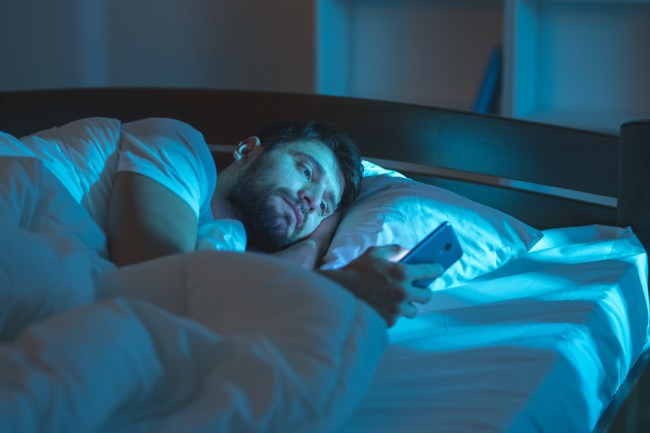
Shutterstock / WeAre
A new scientific study found that being a night owl can kill you. Literally. Individuals who routinely stay up late have a greater risk of premature death according to a massive study.
Researchers examined 433,268 adults between the ages of 38 and 73 in the United Kingdom over a span of six-and-a-half years. The study asked the subjects to self-identify themselves in one of four categories: “definitely a morning person,” “more a morning person than evening person,” “more an evening than a morning person,” or “definitely an evening person.”
During the course of the study, just over 10,000 participants died. Researchers found that the people who identified as “definite evening types” had a 10% higher risk of mortality than the up-and-at’em morning crowd. Even after adjusting for life-cutting variables such as smoking, body mass index, and pre-existing health ailments, the night owls were more likely to die prematurely. Better drink some chamomile tea and hit the sack.
The study, which was published in the journal Chronobiology International, also found that night owls were more likely to have health conditions including diabetes, neurological disorders, gastrointestinal disorders, respiratory disorders, psychological illness, and weight gain.
“Previous work has shown that people who are evening types — are night owls — tend to have worse health profiles, including things like diabetes and heart disease,” said Kristen Knutson, associate professor of neurology at Northwestern’s Feinberg School of Medicine and one of the authors of the study. “But this is really the first study to look at mortality.”
“What we think might be happening is, there’s a problem for the night owl who’s trying to live in the morning lark world,” Knutson explained. “This mismatch between their internal clock and their external world could lead to problems for their health over the long run, especially if their schedule is irregular.”
Of course, this is not an end-all-be-all scientific study and other factors such as night owls will probably engage in more risky activities most likely has something to do with the higher cases of premature deaths. But just to be sure, you might want to hit the hay at a more reasonable time.
[NewAtlas]